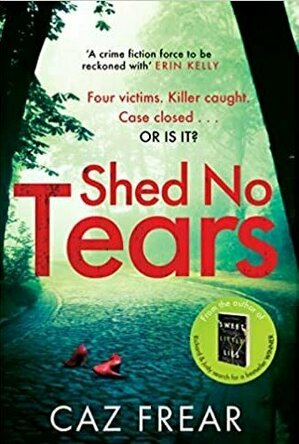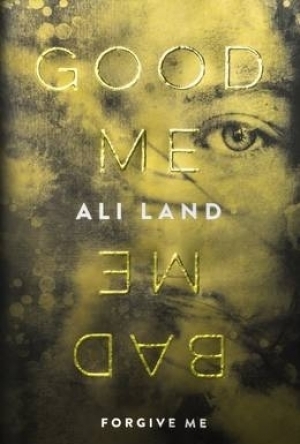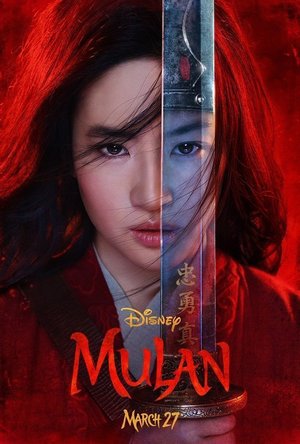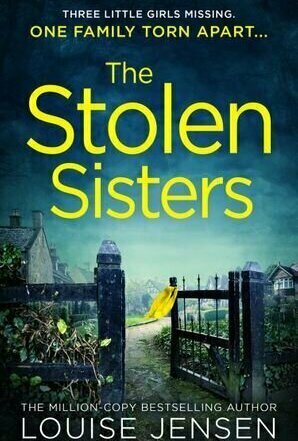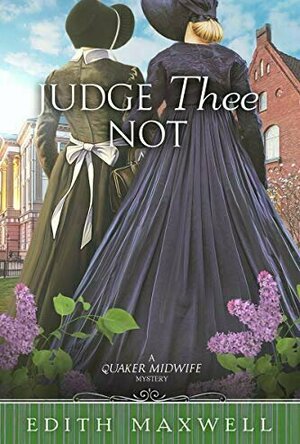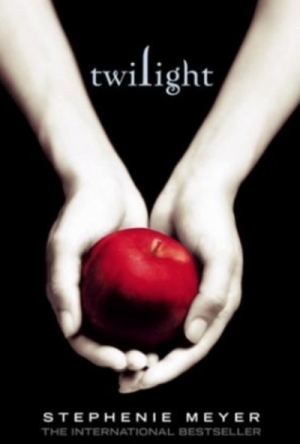Search
Search results

Astro Cat’s Solar System
Education and Games
App
Apple TV Best of 2016 \\\ 2016 Webby Award Winner - Best App, Family & Kids /// *** Pay once &...

GoodRx – Save On Prescriptions
Medical and Health & Fitness
App
Stop overpaying for your prescriptions! Compare prescription drug prices and find coupons to save up...

William Morris and Red House: A Collaboration Between Architect and Owner
Book
Red House occupies an extraordinary place in British architectural history. It was the first and...
Melanie Caldicott (6 KP) rated Afterlove in Books
Apr 29, 2021
*thank you to NetGalley for providing an eArc in exchange for an honest review* You can also read my review at my blog - roamingthroughbooks@wordpress.com" rel="nofollow noopener" target="_blank">https://roamingthroughbooks@wordpress.com
Afterlove is the story of Ash and Poppy and so powerful is their love for each other that it can transcend everything, even death!
I have mixed feelings about this book.
Ash and Poppy were likeable characters who Byrne depicts authentically with gorgeous, small details which helped to bring them to life. However, there were aspects of them that were opaque and I felt that some of the events they shared needed to be explored in more depth as sometimes I felt it made them seem a little shallow. For example, their family lives are explored in certain parts of the book but it felt to me like they were ignored when it was convenient for the author.
Their relationship was at times beautifully depicted, yet I also felt it had a tinge of Romeo and Juliet to it where it felt a little bit too all-consuming, too tragic and didn't reflect the other parts of who Ash and Poppy really were. I think love stories that constrict the meaning of a person's life to this one relationship can feel a little unrealistic and over-simplistic. I would have preferred to have the complexity of the grief the characters must have felt for the the loss of life explored more broadly than just how it related to the love of each other.
It was obvious that Byrne had a lot to say about grief and loss in this book and this was handled well, exploring their pain with tenderness and the emptiness loss leaves with hope. However, whilst the device of Ash becoming a grim reaper was novel I felt it left me a little dry and, along with the conclusion of the novel it did not adequately cover the depths of loss or what it can feel like to be left alone when someone dies.
I'm sure that there are many readers who will enjoy this YA book both for its exploration of teenage lesbian romance and for the way it grapples with grief and loss. Overall, I found the book enjoyable and engaging, but with a few flaws which led to the plot not quite melding with the themes it was trying to explore.
You can also read my review and others at https://roamingthroughbooks.wordpress.com/
Afterlove is the story of Ash and Poppy and so powerful is their love for each other that it can transcend everything, even death!
I have mixed feelings about this book.
Ash and Poppy were likeable characters who Byrne depicts authentically with gorgeous, small details which helped to bring them to life. However, there were aspects of them that were opaque and I felt that some of the events they shared needed to be explored in more depth as sometimes I felt it made them seem a little shallow. For example, their family lives are explored in certain parts of the book but it felt to me like they were ignored when it was convenient for the author.
Their relationship was at times beautifully depicted, yet I also felt it had a tinge of Romeo and Juliet to it where it felt a little bit too all-consuming, too tragic and didn't reflect the other parts of who Ash and Poppy really were. I think love stories that constrict the meaning of a person's life to this one relationship can feel a little unrealistic and over-simplistic. I would have preferred to have the complexity of the grief the characters must have felt for the the loss of life explored more broadly than just how it related to the love of each other.
It was obvious that Byrne had a lot to say about grief and loss in this book and this was handled well, exploring their pain with tenderness and the emptiness loss leaves with hope. However, whilst the device of Ash becoming a grim reaper was novel I felt it left me a little dry and, along with the conclusion of the novel it did not adequately cover the depths of loss or what it can feel like to be left alone when someone dies.
I'm sure that there are many readers who will enjoy this YA book both for its exploration of teenage lesbian romance and for the way it grapples with grief and loss. Overall, I found the book enjoyable and engaging, but with a few flaws which led to the plot not quite melding with the themes it was trying to explore.
You can also read my review and others at https://roamingthroughbooks.wordpress.com/
BookInspector (124 KP) rated Shed No Tears in Books
Sep 23, 2020
The protagonist in this book is Cat Kinsella, and the story is told from her perspective. I really liked Cat in this novel, she is a strong, witty and very interesting character, who has quite a few secrets. The other characters chosen for this book are a different but interesting bunch as well because they all have something to offer to this story. I liked the way Cat was interacting with other people in this book, not only sharing the details from the investigation but her complicated personal life as well. I liked this balance. Due to the wide variety of people in this book, I did have to think sometimes, who is who, because there are many names to remember… 🙂
This book is police procedural, and Cat is sharing the details of her investigation. I really liked the way the victim’s (Holly Kemp) character uncovered during this investigation, every chapter brought something new and kept me longing to find out more. The topics discussed in this book are children in foster care, blackmail, couples and family relations, police work, etc. I found this book absorbing, but the narrative felt a little too slow, I would’ve liked a little more action. 😦 There are quite a few references from the previous books in the series, but as a first-time reader, I was able to understand what was going on. However, I would recommend reading the previous books first. If I read the books from the beginning, I think then I would’ve been able to understand and relate to the characters better.
I really enjoyed the writing style of this novel, the author has a sense of humour, and I really enjoyed her witty and sarcastic remarks during this book. 😀 The setting of this novel keeps changing, so the book doesn’t feel dull. The chapters have medium length, but the book was intriguing, so it did not drag for me. The ending was very unexpected and I really didn’t see it coming. 🙂
So, to conclude, it is a gripping police investigation, filled with a wide variety of different and absorbing characters as well as nicely balanced plot, where we have the chance to learn more about not only the investigative work but also about Cat and the people she loves.
This book is police procedural, and Cat is sharing the details of her investigation. I really liked the way the victim’s (Holly Kemp) character uncovered during this investigation, every chapter brought something new and kept me longing to find out more. The topics discussed in this book are children in foster care, blackmail, couples and family relations, police work, etc. I found this book absorbing, but the narrative felt a little too slow, I would’ve liked a little more action. 😦 There are quite a few references from the previous books in the series, but as a first-time reader, I was able to understand what was going on. However, I would recommend reading the previous books first. If I read the books from the beginning, I think then I would’ve been able to understand and relate to the characters better.
I really enjoyed the writing style of this novel, the author has a sense of humour, and I really enjoyed her witty and sarcastic remarks during this book. 😀 The setting of this novel keeps changing, so the book doesn’t feel dull. The chapters have medium length, but the book was intriguing, so it did not drag for me. The ending was very unexpected and I really didn’t see it coming. 🙂
So, to conclude, it is a gripping police investigation, filled with a wide variety of different and absorbing characters as well as nicely balanced plot, where we have the chance to learn more about not only the investigative work but also about Cat and the people she loves.
BookInspector (124 KP) rated Good Me, Bad Me in Books
Sep 24, 2020
The description above kind of explains what the books was about, but my description would be something as follows: After the incidents at home, when Milly’s mother got arrested, she lives with new foster family. New mom, dad and sister, but there is the problem there. Her new foster sister hates her and starts bullying her in every way possible. New foster parents have no idea about what is going on under their roof. How Milly is going to deal with all the things which are getting thrown at her? Let me start by saying that it is outstanding psychological thriller, where every chapter breathes of suspense and anticipation of what is going to happen next. I really enjoyed the way this book was written, like a letter to character’s evil mum. At the same time it was laying this story so beautifully, it was real pleasure for me to read it. The language used in the book is really understandable and easy to read, so you can put away the dictionary, will not need it here.
I found the characters very diverse and really disturbed in this publication. All of them had some sort of problem they were suffering from and that made them really interesting. I believe here is where author’s life experience came in. She worked with a lot of disturbed people, children and grownups, so that knowledge where greatly used in this novel. In my opinion, children where the strong characters in this book and not the grownups. Those revenge parts were like honey to sore throat, unexpected and so satisfying, after all the anger caused to me by bullying scenes. There was one thing that didn’t make me very happy, I needed more information about the murders. There were more murders, but only one discussed thoroughly. I am extremely curious how others died. Also I needed to know more about what mom used to do to Annie, I didn’t find given information sufficient. I think more information would’ve helped to understand the main character better. The ending of the book was like a crown on the queen’s head, applause for it! So to conclude, this is a gripping psychological thriller with a lot of twists and turns and I do strongly recommend it. Is there going to be a film? I would not be surprised if there would be.
I found the characters very diverse and really disturbed in this publication. All of them had some sort of problem they were suffering from and that made them really interesting. I believe here is where author’s life experience came in. She worked with a lot of disturbed people, children and grownups, so that knowledge where greatly used in this novel. In my opinion, children where the strong characters in this book and not the grownups. Those revenge parts were like honey to sore throat, unexpected and so satisfying, after all the anger caused to me by bullying scenes. There was one thing that didn’t make me very happy, I needed more information about the murders. There were more murders, but only one discussed thoroughly. I am extremely curious how others died. Also I needed to know more about what mom used to do to Annie, I didn’t find given information sufficient. I think more information would’ve helped to understand the main character better. The ending of the book was like a crown on the queen’s head, applause for it! So to conclude, this is a gripping psychological thriller with a lot of twists and turns and I do strongly recommend it. Is there going to be a film? I would not be surprised if there would be.
Neon's Nerd Nexus (360 KP) rated Mulan (2020) in Movies
Sep 10, 2020
No honour
GUEST REVIEW BY THE BEAUTIFUL @fandomfanatichere - PLEASE GO CHECK OUT HER PAGE ON INSTAGRAM TO SEE MORE OF WHAT SHE DOES.
The new Mulan lacks the Disney magic of the other live actions, I found it tiresome, frustrating and the acting very lacking in some parts. The action was reminiscent of a martial arts film, which in itself would be enjoyable, but when you pair it with being a Mulan remake just forms really disappointing and cheesy action scenes. I was also sad to discover that after all of the backlash the film had been getting about its lead actress - Liu Yifei, her acting felt a little wooden. We have an additional character - a witch, whom personally I think brings absolutely nothing to the plot of the film other than irritating camera angels when she attempts to exert her power. One moment she is a strong ominous character and the next she is overthrown in the blink of an eye. We also had the addition of a CGI phoenix, rife with symbolism, a beautiful creature flying around in moments of hope and power, but the whole time I was thinking we have this, and no Mushu?! Our actress was also very unconvincing as a boy, so their surprise upon learning she was in fact a woman, felt very forced. I was, however, delighted to hear instrumental versions of 2 original songs in the background, and some paraphrased lines from the original Mulan subtly added in as Easter eggs for us uber fans of the animated film. The film itself, visually was stunning, sweeping landscape shots, interesting costume design and beautiful colours encapsulated the seductive aesthetics of China. I was also happy to see that whilst we still had hints of romance, it did not take over the plot or cause Mulan to fight for just one man, I still felt she was fighting for her family, her honour, and her right to be a strong woman. Now I feel I have slated the film a lot, but bare in mind I am a HUGE orginal Mulan fan and overall I feel I would have enjoyed the watching experience had it been a general martial arts film set in China, but as it was a highly anticipated Mulan remake, that had been set back multiple times, I was sadly very disappointed.
The new Mulan lacks the Disney magic of the other live actions, I found it tiresome, frustrating and the acting very lacking in some parts. The action was reminiscent of a martial arts film, which in itself would be enjoyable, but when you pair it with being a Mulan remake just forms really disappointing and cheesy action scenes. I was also sad to discover that after all of the backlash the film had been getting about its lead actress - Liu Yifei, her acting felt a little wooden. We have an additional character - a witch, whom personally I think brings absolutely nothing to the plot of the film other than irritating camera angels when she attempts to exert her power. One moment she is a strong ominous character and the next she is overthrown in the blink of an eye. We also had the addition of a CGI phoenix, rife with symbolism, a beautiful creature flying around in moments of hope and power, but the whole time I was thinking we have this, and no Mushu?! Our actress was also very unconvincing as a boy, so their surprise upon learning she was in fact a woman, felt very forced. I was, however, delighted to hear instrumental versions of 2 original songs in the background, and some paraphrased lines from the original Mulan subtly added in as Easter eggs for us uber fans of the animated film. The film itself, visually was stunning, sweeping landscape shots, interesting costume design and beautiful colours encapsulated the seductive aesthetics of China. I was also happy to see that whilst we still had hints of romance, it did not take over the plot or cause Mulan to fight for just one man, I still felt she was fighting for her family, her honour, and her right to be a strong woman. Now I feel I have slated the film a lot, but bare in mind I am a HUGE orginal Mulan fan and overall I feel I would have enjoyed the watching experience had it been a general martial arts film set in China, but as it was a highly anticipated Mulan remake, that had been set back multiple times, I was sadly very disappointed.
Hazel (2934 KP) rated The Stolen Sisters in Books
Oct 10, 2020
Thought-provoking and emotional
This is a thought-provoking and emotional story of 3 sisters who were abducted 20 years ago and how that traumatic event has impacted on them as they have grown into adults.
I haven't read anything by Louise Jensen before and although I am unable to absolutely rave about this book, I will say that it's a well-crafted story that will appeal to many, many readers.
Why am I not raving about this? To be honest, it's hard to explain exactly why and I don't really understand it myself! It started off brilliantly and I was definitely hooked but it just seemed to take too long to get anywhere and although there were surprises, they just didn't hit the spot for me and I didn't get that feeling of excitement and anticipation unfortunately. I don't think this is a fault of the author rather than of me as a reader who is used to reading rollercoaster-of-a-ride books which I don't think this is; I feel it's more of a family drama type story with mystery and tension thrown in.
The story is told in the then and now and from a variety of viewpoints; this isn't as confusing as it sounds and I actually found this worked well for the most part however, I felt that the "then" parts worked better for me and were more engrossing than the "now".
The characters are an interesting bunch, not all of them particularly likeable but all the main ones are well fleshed out.
What I thought shone throughout was the strong relationship between the sisters and the way their horrific experience impacted on their lives and their mental health; this was expertly done with sensitivity and I have no shame in admitting that there were parts that made me a bit emotional - I am the youngest of 3 sisters and I did wonder how we would have turned out if this had happened to us but I quickly stopped that because it is too horrific to contemplate.
Like I said at the beginning, I am unable to say this has been one of my best reads of 2020 but I will certainly read more by this author in the future.
Thank you to HQ (an imprint of HarperCollins UK) via NetGalley for my copy in return for an honest, unbiased and unedited review.
I haven't read anything by Louise Jensen before and although I am unable to absolutely rave about this book, I will say that it's a well-crafted story that will appeal to many, many readers.
Why am I not raving about this? To be honest, it's hard to explain exactly why and I don't really understand it myself! It started off brilliantly and I was definitely hooked but it just seemed to take too long to get anywhere and although there were surprises, they just didn't hit the spot for me and I didn't get that feeling of excitement and anticipation unfortunately. I don't think this is a fault of the author rather than of me as a reader who is used to reading rollercoaster-of-a-ride books which I don't think this is; I feel it's more of a family drama type story with mystery and tension thrown in.
The story is told in the then and now and from a variety of viewpoints; this isn't as confusing as it sounds and I actually found this worked well for the most part however, I felt that the "then" parts worked better for me and were more engrossing than the "now".
The characters are an interesting bunch, not all of them particularly likeable but all the main ones are well fleshed out.
What I thought shone throughout was the strong relationship between the sisters and the way their horrific experience impacted on their lives and their mental health; this was expertly done with sensitivity and I have no shame in admitting that there were parts that made me a bit emotional - I am the youngest of 3 sisters and I did wonder how we would have turned out if this had happened to us but I quickly stopped that because it is too horrific to contemplate.
Like I said at the beginning, I am unable to say this has been one of my best reads of 2020 but I will certainly read more by this author in the future.
Thank you to HQ (an imprint of HarperCollins UK) via NetGalley for my copy in return for an honest, unbiased and unedited review.
Mark @ Carstairs Considers (2474 KP) rated Judge Thee Not in Books
Sep 13, 2019
I’m Still Trying to Judge My Reaction to This Book
Midwife Rose Carroll is surprised to step into the Amesbury, Mass., post office one June afternoon and find Mayme Settle complaining loudly about postmistress Bertie Winslow. The problem isn’t poor service but Bertie’s untraditional lifestyle, specifically that she lives with another woman. Mrs. Settle doesn’t feel this is proper, and is making her feelings known. While Rose is upset for her friend, Bertie is more than willing to let the slight go. However, one morning Mrs. Settle is found dead in her bed, and the police are quick to rule it murder. Unfortunately, they are just as quick to focus on Bertie as their prime suspect. Can Rose help the police find the truth?
The mystery is good with several viable suspects; however, I felt the pacing was off. It was a bit too slow in the beginning and a bit rushed at the end. While it wraps everything up, we get a lot of information thrown at us rather quickly to do so. It is always fun to spend time with Rose, and I love her friends. There were some interesting developments with her family in this book, which I enjoyed. The suspects were strong, but I felt the victim was a bit of a cliché, needing more time alive to become more real to me. My feelings on the victim also plays into my issues with the theme. As the title suggests, we get a few passages that look at how humans judge others. The problem was I felt these were too modern for a book set in the 1880’s. Mind you, I haven’t done the research, so maybe I’m the one judging too harshly. Other viewpoints were certainly not shown as anything other than wrong, and Rose comes off as almost judging others a few times herself. The title comes from a version in Matthew 7 in the Bible, and is taken out of context, as it usually is. These issues pulled me out of the book (and certainly bothered me) when they popped up, but the focus of the book was mostly on the mystery. Those who have enjoyed previous books will want to pick up this book and judge it for themselves. Most will probably be glad they did.
The mystery is good with several viable suspects; however, I felt the pacing was off. It was a bit too slow in the beginning and a bit rushed at the end. While it wraps everything up, we get a lot of information thrown at us rather quickly to do so. It is always fun to spend time with Rose, and I love her friends. There were some interesting developments with her family in this book, which I enjoyed. The suspects were strong, but I felt the victim was a bit of a cliché, needing more time alive to become more real to me. My feelings on the victim also plays into my issues with the theme. As the title suggests, we get a few passages that look at how humans judge others. The problem was I felt these were too modern for a book set in the 1880’s. Mind you, I haven’t done the research, so maybe I’m the one judging too harshly. Other viewpoints were certainly not shown as anything other than wrong, and Rose comes off as almost judging others a few times herself. The title comes from a version in Matthew 7 in the Bible, and is taken out of context, as it usually is. These issues pulled me out of the book (and certainly bothered me) when they popped up, but the focus of the book was mostly on the mystery. Those who have enjoyed previous books will want to pick up this book and judge it for themselves. Most will probably be glad they did.
Becs (244 KP) rated Twilight (Twilight, #1) in Books
Oct 2, 2019
Genre: Young Adult, Romance, Fantasy, Paranormal, Fiction, Supernatural.
Type: Book one (1) of the Twilight Saga
Audience/ Reading Level: 14+
Interests: Vampires, Supernatural, Fantasy, Romance, Action.
Point of View: Third Person
Promise: A love story between a pair of star-crossed lovers whose forbidden relationship ripens against the backdrop of small-town suspicion and a mysterious coven of vampires.
Insights: I did a buddy read for a reread through of Twilight with a good friend of mine and boy, am I glad I reread it! I’ve always loved The Twilight Saga. But rereading it as an adult, really made me appreciate it a bit more. Yes, there were some grammatical errors that took away from the surrounding text and there were some parts that I found a bit of a bore. All in all, I fell in love with the love story between Edward and Bella again and really grew to appreciate the Cullen’s as a family.
I was surprised that I had quite a few different favorite parts that weren’t my favorite parts before. And I’m tremendously surprised that some of the parts that I loved when I first read Twilight, were actually still my favorite parts. It goes to show that a novel can be appreciated many years later, even though your opinions and tastes change.
Favorite Quotes: “I’d never given much thought to how I would die – though I’d had reason enough in the last few months – but even if I had, I would not have imagined it like this.”
“You don’t care if I’m a monster? If I’m not human?”
“About three things I was absolutely positive. First, Edward was a vampire. Second, there was part of him and I didn’t know how potent that part might be – that thirsted for my blood. And third, I was unconditionally and irrevocably in love with him.”
“He looks at you like… like you’re something to eat.”
“No coffins, no piled skulls in the corners; I don’t even think we have cobwebs… what a disappointment this must be for you.”
“Could you believe that, despite everything I’ve put you through, I love you, too?”
What will you gain?: A love story with a bite!
Aesthetics: I’ve always loved the simple and minimalistic cover on Twilight. The story was also a very easy read to get into and I enjoyed the love story (and action!) that took place throughout the novel.
“You are only human after all.”
Type: Book one (1) of the Twilight Saga
Audience/ Reading Level: 14+
Interests: Vampires, Supernatural, Fantasy, Romance, Action.
Point of View: Third Person
Promise: A love story between a pair of star-crossed lovers whose forbidden relationship ripens against the backdrop of small-town suspicion and a mysterious coven of vampires.
Insights: I did a buddy read for a reread through of Twilight with a good friend of mine and boy, am I glad I reread it! I’ve always loved The Twilight Saga. But rereading it as an adult, really made me appreciate it a bit more. Yes, there were some grammatical errors that took away from the surrounding text and there were some parts that I found a bit of a bore. All in all, I fell in love with the love story between Edward and Bella again and really grew to appreciate the Cullen’s as a family.
I was surprised that I had quite a few different favorite parts that weren’t my favorite parts before. And I’m tremendously surprised that some of the parts that I loved when I first read Twilight, were actually still my favorite parts. It goes to show that a novel can be appreciated many years later, even though your opinions and tastes change.
Favorite Quotes: “I’d never given much thought to how I would die – though I’d had reason enough in the last few months – but even if I had, I would not have imagined it like this.”
“You don’t care if I’m a monster? If I’m not human?”
“About three things I was absolutely positive. First, Edward was a vampire. Second, there was part of him and I didn’t know how potent that part might be – that thirsted for my blood. And third, I was unconditionally and irrevocably in love with him.”
“He looks at you like… like you’re something to eat.”
“No coffins, no piled skulls in the corners; I don’t even think we have cobwebs… what a disappointment this must be for you.”
“Could you believe that, despite everything I’ve put you through, I love you, too?”
What will you gain?: A love story with a bite!
Aesthetics: I’ve always loved the simple and minimalistic cover on Twilight. The story was also a very easy read to get into and I enjoyed the love story (and action!) that took place throughout the novel.
“You are only human after all.”

